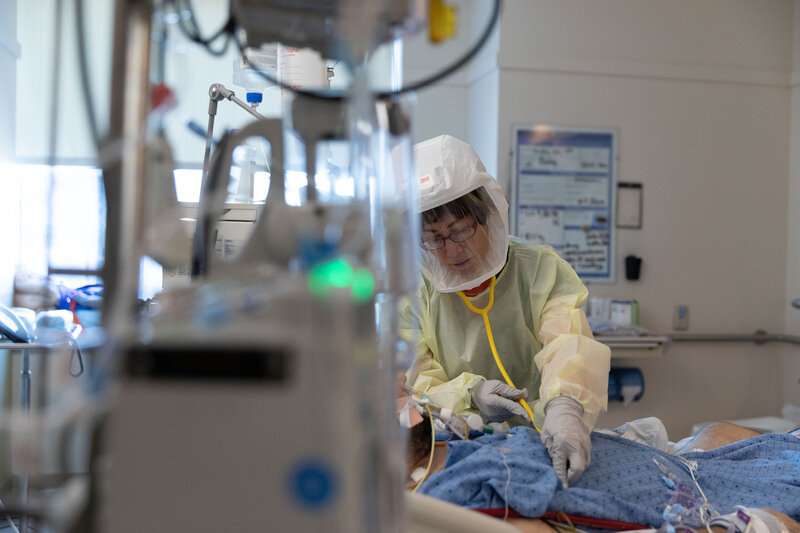Researchers find most commonly prescribed class of anti-depressant medications do not reduce COVID severity

A new study by researchers at Intermountain Healthcare in Salt Lake City finds that the most commonly prescribed class of anti-depressants does not help reduce the severity of illness or even death for people who get COVID, as once thought.
In the early days of the COVID pandemic, some observational studies suggested there may be a link between greater survival and lower COVID severity in patients taking selective serotonin reuptake inhibitors (SSRIs)—the most commonly prescribed class of antidepressants in America.
It's not surprising that early on researchers thought there might be a connection. These drugs have both anti-inflammatory and anti-platelet effects, and physicians saw a potential that SSRIs could possibly prevent the intense inflammatory response that is a hallmark of severe COVID.
However, new research from Intermountain Healthcare finds that is not the case for people who test positive for COVID in an out-patient setting.
"At the start of the pandemic, everyone was searching for how to help prevent severe COVID, and SSRIs became a focus of interest," said Heidi T. May, Ph.D., principal investigator of the study and cardiovascular epidemiologist with the Intermountain Healthcare Heart and Vascular Program. "However, those initial observations of a possible connection didn't pan out when we looked for a possible link on our patient population."
The findings from the study were presented at the American Heart Association's Scientific Sessions 2022, which is being held in Chicago.
In this retrospective study, Intermountain researchers examined 33,088 people who tested positive for COVID-19 between March 14, 2020, and December 31, 2021, in an Intermountain outpatient setting. Of those people, 8,272 were also on a fluoxetine/fluvoxamine SSRI.
Researchers found that hospitalization and death were significantly greater in the SSRI group than the non-SSRI group, and that not being on an SSRI was associated with a lower 14-day COVID-19 hospitalization risk.
This doesn't mean that being on an SSRI prompts severe COVID, but that in this study, they didn't offer any protection against COVID, said Dr. May
"These results add to the body of research that the relationship that, for patients testing positive in an outpatient setting, SSRI medications didn't reduce the risk of their then-mild COVID turning into severe COVID, or dying of the virus," she said.
More information: Progression of COVID-19 Severity Among SARS-CoV-2 Positive Patients Prescribed Selective Serotonin Reuptake Inhibitors, American Heart Association's Scientific Sessions 2022.


















